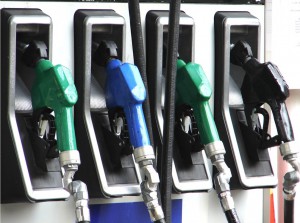With the Memorial Day in the rear-view mirror, the summer driving season has begun in earnest and demand for gasoline remains very strong, according to AAA.
AAA, however, also reported that motorists are paying the lowest gas prices for this time of year in more than a decade. Gas prices during the Memorial Day holiday were the cheapest since 2005 and down 42 cents per gallon versus last year’s holiday, according to AAA latest nationwide survey.
The average price of $2.32 per gallon represents an increase of three cents per gallon on the week, and consumers are paying 11 cents more per gallon than they were a month ago, AAA said, while this year’s summer driving season is expected to be characterized by higher-than-normal gasoline demand.
Overall, demand remains on pace to test record levels reached in 2007, AAA said, and refineries nationwide are working in preparation for what is likely to be record breaking season. If refineries are able to keep pace, pump prices should remain relatively low.
The Midwest, where prices have been volatile for the past month, is posting the nation’s largest decline in gasoline inventories, which fell for the 15th week straight to 2016 lows and supply is described as tight throughout the region. A number of refineries in the region are also reporting challenges, and reduced production, combined with sustained demand are believed to be behind prices moving noticeably higher in the region in recent weeks.
(May auto sales declined due to fewer selling days. For more, Click Here.)
The nation’s top five most expensive markets are California, the perennial leader at $2.81 per gallon, Hawaii at $2.70 per gallon, Alaska at $2.61 per gallon, Washington at $2.60 and Washington, D.C. at $2.51 have the highest prices but states in the industrial Midwest are now among the top 10 most expensive states, according to AAA.
The nation’s least expensive markets include Mississippi at $2.09 per gallon, Texas at $2.09, South Carolina at $2.10, Arkansas and Louisiana at $2.11 per gallon.
Oil ministers belonging to the Organization of Petroleum Exporting Countries, or OPEC, are meeting this week in Vienna, Austria, but the confab is not expected to produce any kind of agreement to reduce production by members.
The decline in any kind of pricing discipline among OPEC members is putting serious pressure on the organization, which is expected to continue its current course of action and refrain from cutting production to help balance the market.
(Click Here for details about what’s new in 2017.)
During the past week both global crude oil benchmarks, Brent and West Texas Intermediate, exceeded the $50 per barrel threshold due to expectations of tightening supply due to wildfires around the Canadian Oil Sands region and geopolitical tensions in Nigeria and Libya, analysts said.
The decline in new drilling activity in the United States and the bankruptcy of some produces also has contributed to the tightening of supplies. At the close of last Friday’s formal trading session on the NYMEX, WTI closed down 15 cents to settle at $49.33
AAA noted that one potential wildcard for gas prices in the coming months is the Atlantic Hurricane Season, which runs from June 1 to Nov. 30.
The National Oceanic and Atmospheric Administration’s Climate Prediction Center, this year’s season will likely be near normal, which means of the 10-16 named storms of which four to eight could become hurricanes. Should any of these severe storms or hurricanes reach landfall, production, refining and distribution could be impacted, leading to price spikes in regional markets along the coast and in areas that rely upon crude oil and refined product from these regions, AAA said.
(To see the rest of what’s new for next year, Click Here.)
The 2005 Hurricane season, which featured the devastation around New Orleans from Hurricane Katrina as well as lesser storms that did severe damage to oil-drilling platforms in the Gulf of Mexico, led to a sharp increase in gasoline prices across the nation.


I was wondering what the excuse was for the +20 cent jump last Wednesday (2 days after Memorial Day). Reduced production and so-called challenges – HA!! Is that new refinery-speak for gouging?